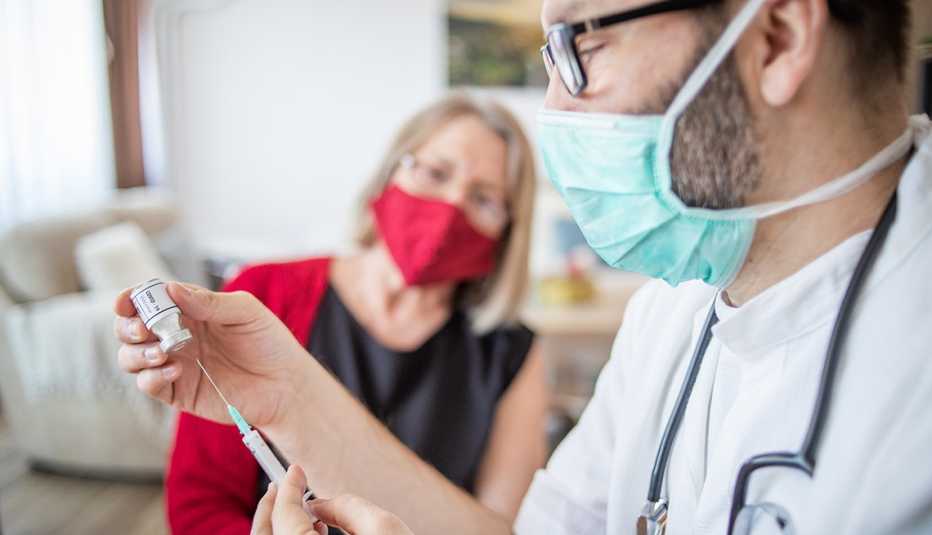Staying Fit


Booster shots for Pfizer vaccine recipients are here, and millions of Americans who completed the initial series at least six months ago are now eligible for the extra dose, including adults under 65 with a range of underlying health conditions.


AARP Membership— $12 for your first year when you sign up for Automatic Renewal
Get instant access to members-only products and hundreds of discounts, a free second membership, and a subscription to AARP the Magazine.
The decision to cover this group in the booster criteria “reflect[s] the potential increase for severe outcomes” that a person with a chronic disease or other medical condition could experience if they get COVID-19, Centers for Disease Control and Prevention (CDC) Director Rochelle Walensky, M.D., explained in a Sept. 24 briefing on boosters.
Emerging research shows that while the vaccines still provide strong protection against hospitalization and death from COVID, their defense against infection begins to wane over time, especially in older adults, who are more likely to get sick if they contract the virus. That is why all adults 65 and up are encouraged to get the booster shot. But Walensky said the data on sustained vaccine effectiveness “are harder to parse out for those with underlying conditions” — another group that has been at high risk for severe COVID-19 since the start of the pandemic. “But we’re starting to see those data both here and in other countries,” she added.
For that reason, the CDC is recommending that adults ages 50 to 64 with the following health conditions get the booster shot if they had the Pfizer vaccine; people 18 to 49 who fall into this category also qualify for the booster, but are encouraged to assess their own risk and consult with a health care provider for advice:

































































More on health
10 COVID Vaccine Myths
Fact vs. fiction on the coronavirus shots
What Are the Side Effects of COVID-19 Vaccines?
Serious events are rare, but with reports of blood clots, allergic reactions, here’s what you need to know.4 Reasons You Shouldn't Skip Your Second COVID-19 Shot
Why the final dose of Moderna, Pfizer vaccines could be more important than the first